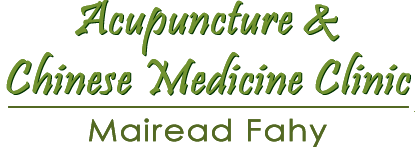Spring into life with Traditional Chinese Medicine!
At last! The long-awaited change from the dark, cold wet days of winter, to the brightness , warmth and vibrancy of Spring has arrived! The days are getting longer, and nature is full of renewal and rebirth. Seeds sprout, flowers bloom, and the sap which has been hibernating in tree roots rushes up to bring forth new freshness and life.
There is a sense of optimism and renewed hope.
While winter was a time to conserve energy and reduce activity, spring is a time of regeneration, new beginnings, and a renewal of spirit.
In Chinese Medicine this means Yin is changing to Yang. Cold is changing to warmth (hopefully!) and sleepiness and lethargy change to a vibrant active energy!
It is also the ideal time for cleansing and rejuvenating your overall health and well-being.
Spring is represented by the wood element in Chinese Medicine, and is associated with the Liver and its complementary organ, the Gallbladder. At this time of year these two organs are usually the primary organs needing attention and springtime cleansing.
Some other associations with Spring are:
- Element: Wood
- Colour: Green
- Nature: Yang
- Organs: Liver, Gallbladder
- Emotion: Anger
Spring corresponds to the “Wood” element in Chinese Medicine, which in turn is conceptually related to the liver and gallbladder organs. According to the philosophy of Chinese medicine, the liver is responsible for the smooth flow of Qi (energy) throughout the body. When the liver functions smoothly, physical and emotional activity throughout the body also runs smoothly. If however, Liver Qi does not flow smoothly and easily, you may experience feelings of Anger and Irritability and you may get symptoms like PMT, Stress, IBS, and Headaches .
So, for optimum health this spring, move your Qi! Take the Chinese Herb Xiao Yao Wan (Free and Easy Wanderer) which helps to move stagnant Liver Qi and relieve symptoms.
Stretch – The liver controls the tendons. According to Chinese medicine, the liver stores blood during periods of rest and then releases it to the tendons in times of activity, maintaining tendon health and flexibility. Incorporate a morning stretch into your routine. Try yoga or tai qi.
Eye Exercises – The liver in Chinese Medicine has an affect on the eyes. Although all the organs have some connection into some degree to the health of the eyes, the liver is connected to proper eye function. So if you suffer dry gritty eyes, look to Liver health. Remember to take breaks when looking at a computer monitor for extended periods of time and do eye exercises.
Eat Green – Green is the color associated with the liver and springtime. Eating young plants – fresh, leafy greens, sprouts, and immature cereal grasses – can improve the liver’s overall health function and aid in the movement of Qi.
Taste Sour – Foods and drinks with sour tastes are thought to stimulate liver Qi. Put lemon slices in your drinking water, use vinegar and olive oil for your salad dressing. Garnish your sandwich with a slice of dill pickle. Apple cider vinegar can be very beneficial overall as a general tonic at this time of year.
Do more outdoor activities – Aerobic exercise helps liver Qi to flow more smoothly. If you have been feeling tired and irritable, find an outdoor activity to smooth out that liver Qi stagnation! Try walking for 20 minutes every day! Your dog and your Liver will be very grateful!
Enjoy milk thistle tea
Milk thistle helps protect liver cells from incoming toxins and encourages the liver to cleanse itself of damaging substances, such as alcohol, medications, pesticides, environmental toxins, and even heavy metals such as mercury.
Get Acupuncture treatments- Acupuncture and Oriental medicine can help improve the overall health of your liver as well as treat stress, anger and frustration, which are often associated with liver qi disharmony.
Seasonal acupuncture treatments just four times a year can serve to tonify the inner organ systems and can correct minor problems before they become serious problems. Call me to see how acupuncture can help you stay healthy and vibrant this spring!
So…go ahead! Put some Spring in your step with Chinese Medicine!

